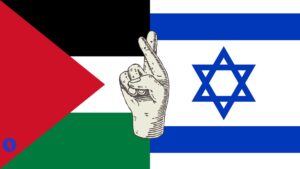The president of Kosovo just announced via Insta that she’s granted citizenship to UK-based popstar Dua Lipa, so you know what that means, dear Intriguer. Yes, we’re going to need a quick look at the geopolitics of citizenship, with three examples, starting in…
i. 🇽🇰 Kosovo
Why’d President Osmani do this? Sure, Dua Lipa was born to Kosovan-Albanian parents, and lived there for a few years after Kosovo declared independence from Serbia in 2008. And sure, she already got Albanian citizenship back in 2022. But why’d world leaders blast this out via Insta rather than the generic notification the rest of us might get?
Stay on top of your world from inside your inbox.
Subscribe for free today and receive way much more insights.
Trusted by 146,000+ subscribers
No spam. No noise. Unsubscribe any time.
First, for two of Europe’s poorest countries, drawing links to an international recording artist is an easy way to burnish your brand, not only in hopes of encouraging more trade and investment (including via their big diasporas), but also more tourism: Dua Lipa has an annual Sunny Hill music festival in Kosovo, for example.
Second, that kind of branding (success, creativity) also helps Albania’s ongoing EU bid.
But third, it’s also just good for Kosovo’s security: it’s not only asserting Kosovar culture, but also… even having the world aware of your existence might a) discourage an invasion from Serbia (which still claims all of Kosovo), and/or b) foster more international help if things do get hot again. Speaking of which…
- 🇷🇺 Russia
The Kremlin occasionally grants citizenship to Westerners critical of the West, whether Steven Seagal (2016) or Gérard Depardieu (2013). Both had already fallen ass-backwards off the A-list via tax and #metoo allegations (Depardieu also famously relieved himself in first class), but that hasn’t stopped the Kremlin using both for propaganda purposes, framing their switch as examples of Western celebrities preferring Moscow’s model.
Putin also imposes mass citizenship to ratify his periodic invasions, decreeing it for 3.2 million locals after taking Ukraine’s Crimea in 2014, then another 400,000 when seizing parts of Donetsk and Luhansk soon after. He’s now issued some 3.5 million more Russian passports across occupied Ukraine since 2022 (a top European court has found in part that folks are just too scared to refuse). But then there’s…
- 🇧🇯 Benin
The French-speaking West African nation passed a ‘My Afro-Origins Law‘ last year, building on its own earlier apology for its predecessor kingdoms of Whydah / Dahomey selling fellow African people to transatlantic slave-traders. The idea is to grant citizenship to descendants of slaves, with R&B star Ciara nabbing her Beninese papers at a ceremony in Cotonou last week (film-maker duo Spike and Tonya Lewis Lee were also in town to formalise their appointment as Benin’s cultural ambassadors in the US).
But what’s in it for Benin? The government has framed it all as a way to a) make amends for its past, and b) turn that dark history into economic opportunity, including by encouraging more memorial and heritage tourism.
It’s also an example of what the African Union bloc might’ve had in mind when it declared the continent’s vast diaspora as Africa’s official ‘Sixth Region’ in 2005: it’s about figuring how to tap the skills, capital, and networks of those 200 million folks all around the world.
But whatever the specifics, each of the above three examples is a reminder that a passport isn’t just paperwork anymore: it’s also strategy, symbolism, and even soft power.
Intrigue’s Take
We’re barely scratching the surface here, of course. There’s also…
- Budapest‘s fast-tracking of citizenship for ethnic Hungarians
- Israel‘s law of return for Jewish people worldwide
- Italy‘s citizenship for Argentina’s President Milei
- The UAE‘s rare citizenship offers for top scientists and creatives, and
- China‘s rejection of dual citizenship (on loyalty and complexity grounds — unless of course you’re an Olympic medallist!).
But what does any of this teach us about our world?
First, citizenship is no longer (if it ever was) just a legal status: it’s also a geopolitical signal, projecting the type of country you are or want to be, whether it’s creative Kosovo, benevolent Benin, or resurgent Russia.
Second, as our world de-globalises, capitals are redefining who belongs (and who doesn’t) in pursuit of specific goals, whether demographic, economic, or strategic.
And third for individuals, it’s a reminder that in a fragmented world, identity can be up for grabs too: whether it’s taxes, family history, or just a new start (particularly if you’ve got that sweet sweet PhD in AI or semiconductors), your options are rapidly evolving.




